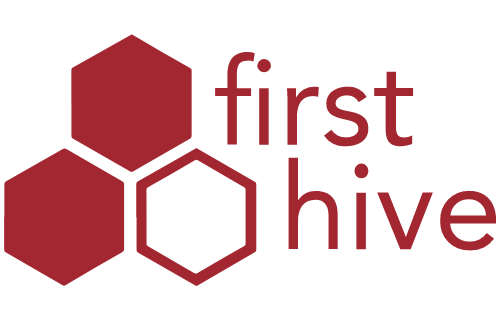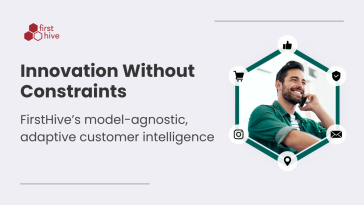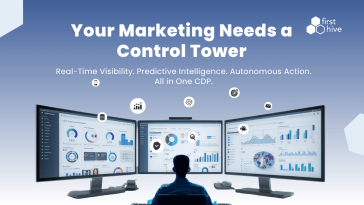Call centers are increasingly turning to artificial intelligence (AI) to enhance their operations and improve customer experiences. With a wide range of AI tools available, it can be challenging to determine which ones are the best fit for call center environments. In this comprehensive guide, we will explore the various AI tools that are revolutionizing call centers and discuss the benefits they bring.
In this guide, you’ll find:
- 5 benefits of AI tools in enhancing contact center operations
- 7 types of AI tools for contact centers
- How AI is changing existing contact center systems
- Implementing contact center AI
- What to look for in contact center AI software
- And more!
5 Benefits of AI Tools in Enhancing Contact Center Operations
AI tools offer a multitude of benefits for contact centers. Here are five key advantages:
- Improved customer service: AI-powered tools enable call centers to provide personalized and efficient customer service, resulting in higher customer satisfaction rates.
- Enhanced call center optimization: AI tools optimize call center operations by automating repetitive tasks, reducing call handling times, and improving overall efficiency.
- Increased efficiency: AI tools streamline workflows, allowing call center agents to handle more calls and resolve issues faster.
- Comprehensive chat analysis: AI tools analyze chat conversations in real-time, identifying trends, sentiment, and customer needs, enabling call centers to improve their chat support services.
- Enhanced quality assurance: AI tools enable call centers to monitor calls, chat conversations, and agent performance, ensuring quality standards are met and providing valuable feedback for agent training and improvement.
7 Types of AI Tools for Contact Centers
There are various AI tools available that cater specifically to contact centers. Here are seven types of AI tools that are transforming the call center landscape:
- Conversation intelligence: Conversation intelligence tools analyze and extract insights from customer conversations, providing valuable data for training, coaching, and improving call center operations.
- Automated call monitoring: AI-powered tools monitor and analyze calls in real-time, flagging potential issues, and providing supervisors with valuable insights to ensure quality service.
- Chat analysis: AI tools analyze chat conversations, detecting customer sentiment, identifying common issues, and suggesting appropriate responses for agents.
- Coaching and reporting: AI tools provide real-time coaching and reporting capabilities, helping call center agents improve their performance and providing supervisors with valuable insights for performance evaluation.
- Quality assurance: AI tools automate the quality assurance process by evaluating calls and chat conversations, ensuring adherence to call center standards and identifying areas for improvement.
- Virtual agents and chatbots: AI-powered virtual agents and chatbots handle customer inquiries, providing instant responses and freeing up call center agents to focus on complex issues.
- Interactive Voice Response (IVR): IVR systems use AI to interact with customers, providing self-service options and routing calls to the appropriate departments or agents.
By leveraging these AI tools, contact centers can significantly improve their operations and customer experiences.
How AI is Changing Existing Contact Center Systems
AI is revolutionizing existing contact center systems by enhancing efficiency, productivity, and customer experiences. Here are some ways AI is changing the call center landscape:
- Improved call routing: AI-powered call routing systems analyze customer information and call context to ensure calls are efficiently directed to the most suitable agents.
- Real-time call analytics: AI tools provide instant call analytics, enabling supervisors to monitor call performance, identify bottlenecks, and make informed decisions to optimize operations.
- Better understanding of customer behavior: AI-powered analytics tools analyze customer interactions across multiple channels, providing valuable insights into customer preferences, behavior, and needs.
- Real-time response suggestions: AI tools analyze ongoing conversations and provide agents with real-time suggestions and guidance to enhance customer interactions.
- Self-service and call deflection options: AI-powered chatbots and virtual agents enable customers to find answers to common queries and perform self-service tasks, reducing the load on call center agents.
These AI-driven changes are reshaping how contact centers operate and enabling them to deliver more efficient and personalized services to customers.
Implementing Contact Center AI
Implementing contact center AI requires careful planning and consideration. Here are some key steps to successfully implement AI in a contact center:
- Define clear objectives: Clearly define the goals and objectives you want to achieve through AI implementation, whether it’s improving customer satisfaction, optimizing operations, or enhancing agent performance.
- Integrate it with your other tools: Ensure that the AI tools seamlessly integrate with your existing contact center software and systems, enabling smooth operations and data flow.
- Provide adequate training and support: Train your agents on how to effectively use AI tools and provide ongoing support to address any issues or concerns they may have.
- Monitor progress and optimize: Continuously monitor the performance and effectiveness of AI tools, identify areas for improvement, and optimize your processes accordingly.
By following these steps, contact centers can successfully implement AI and leverage its capabilities to drive better outcomes.
What to Look for in Contact Center AI Software
When selecting contact center AI software, consider the following factors:
- Natural language processing: Look for AI tools that can accurately understand and process natural language, enabling effective customer interactions.
- AI-powered customer service: Choose AI tools that provide intelligent and personalized customer service, ensuring customer satisfaction and loyalty.
- Predictive analytics with centralized data: Opt for AI tools that leverage predictive analytics and utilize centralized data to make data-driven decisions and improve operational efficiency.
- Automatic call routing: AI-powered call routing systems should efficiently direct calls to the most appropriate agents based on customer needs and agent capabilities.
- Automated quality management and coaching: AI tools should automate quality management processes, providing feedback and coaching to agents for continuous improvement.
By considering these factors, contact centers can select the most suitable AI software to meet their specific needs.
Conclusion
AI is revolutionizing call centers by enhancing customer service, optimizing operations, and improving overall efficiency. With a wide range of AI tools available, contact centers can leverage conversation intelligence, automated call monitoring, chat analysis, coaching and reporting, quality assurance, virtual agents, chatbots, and interactive voice response systems to transform their operations and deliver exceptional customer experiences. By carefully implementing and integrating AI tools, contact centers can unlock their full potential and stay ahead in an ever-evolving customer service landscape.
FAQs
Can AI replace call center agents?
While AI can automate repetitive tasks and provide self-service options, human agents are still essential for handling complex customer issues and providing personalized assistance.
How does AI improve customer experience in call centers?
AI improves customer experience by providing personalized and efficient support, reducing wait times, and offering self-service options.
How can AI improve agent engagement in call centers?
AI tools can provide real-time guidance, automate repetitive tasks, and offer insights and coaching to agents, enhancing their engagement and performance.
How does AI help call centers improve operational efficiency and productivity?
AI automates manual tasks, optimizes call routing, provides real-time analytics, and enables self-service options, resulting in improved efficiency and productivity.








